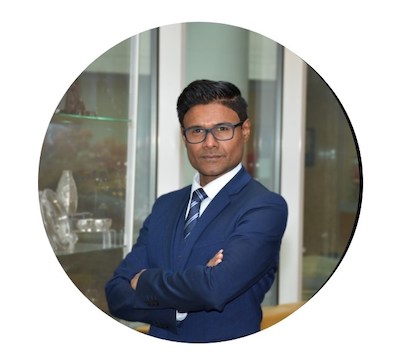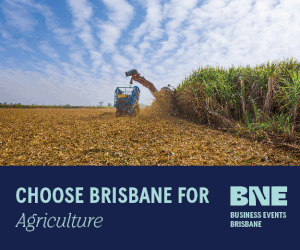World Customs Organisation (WCO) - The impact of international events for their association Globalisation

An interview with Ludovic Thanay, Head of Communications, Events and Strategic Planning Unit at the World Customs Organisation (WCO).
HQ: Can you please introduce yourself a bit to our readers?
 Ludovic Thanay: I am actually the Head of Communications, Events and Strategic Planning Unit at the World Customs Organization (WCO), an inter-governmental organisation based in Brussels and focused on providing capacity building to Member countries and also developing tools and instruments to assist Customs to enhance their performance. I was previously the head of the Taxpayer Education and Communication Department of the Mauritius Revenue Authority (MRA) and before that, I was a journalist/anchorperson/producer at the Mauritius Broadcasting Corporation (MBC).
Ludovic Thanay: I am actually the Head of Communications, Events and Strategic Planning Unit at the World Customs Organization (WCO), an inter-governmental organisation based in Brussels and focused on providing capacity building to Member countries and also developing tools and instruments to assist Customs to enhance their performance. I was previously the head of the Taxpayer Education and Communication Department of the Mauritius Revenue Authority (MRA) and before that, I was a journalist/anchorperson/producer at the Mauritius Broadcasting Corporation (MBC).
I have a long-standing experience in communication, event organisation, strategic planning and external relations. As the head of communication, I am in charge of public relations, website content, intranet, social media communication and publications of the WCO. I am actually developing a Communication Handbook that will act as a compendium of best practices among members of the WCO as well as a Communication Brandbook to provide brand guidelines to the organisation.
In my capacity as Head of Events, I organize international events such as the WCO Information Technology (IT) Conference and Exhibition, the Global AEO Conference, the WCO Technology and Innovation (TI) Forum, the Global Cross-border E-Commerce Conference, among other major events. I handle the selection of the venue, the logistics as well as the funding/sponsorship of the events that fall under my responsibility. I am actually working on an Event protocol handbook for the organisation to standardize the way events are organized within the organisation.
My responsibility with regards to Strategic Planning is to ensure that we capture the strategic priorities of Members through a three-year strategic plan, translate them into strategic activities and develop measurable deliverables and KPIs for all activities that are then assessed through a yearly operational plan. We are actually in the process of preparing a new Strategic Plan that will better reflect the needs and expectations of Customs administrations worldwide.
With the trend of the globalisation, what is the role of the World Customs Organization playing?
The WCO advocates the use of technology to transform Globalization into a positive force. Every year, the Secretary General of the WCO, Dr. Kunio Mikuriya dedicates a theme to promote actions that facilitate trade and promote economic growth. In 2019 the theme will be “SMART borders for seamless Trade, Travel and Transport”, thus promoting Security along border lines, Measurability of performance, Automation of processes, Risk-management based approach for control of goods and people and a Technology-driven mindset.
As the world has embarked into an era marked by the fourth industrial revolution, the demarcation line between physical, digital and biological components that are imported and exported, has faded away. Customs has a bigger responsibility to act as a central coordinator to ensure that all the actors along the supply chain are well equipped to face up the challenges posed by disruptive technologies. The WCO provides Customs administrations with adequate instruments to ensure that legitimate trade is facilitated and that there is a seamless flow of passengers and conveyances but at the same time, Customs need to protect the frontiers against a plethora of safety, security and biosecurity threats including terrorism financing, improvised explosive devices, dual goods and firearms.
With the growth in e-commerce, triggering a high volume of low-value and small shipments, Customs have to improve border management to respond to the challenge. The WCO has developed a Cross-Border E-Commerce Framework of Standards to assist its Members in this process. At the same time, the Customs community is exploring the use of other ICT solutions such as smart devices, Blockchain technology, cloud computing, robotics, the Internet of Things, 3D printing, Artificial Intelligence, as well as smart track and trace technologies for cargo, containers and conveyances, a worldwide standard for X-ray images, advanced chemical analysis, and the use of geospatial technologies coupled with drones for monitoring fragile or inaccessible terrains.
Customs is no longer seen as a revenue collector but rather as a trade facilitator, a major player that has the ability to strengthen the global value chain. In this regard, the WCO assists its Members to implement the World Trade Organization (WTO) Trade Facilitation Agreement through the Mercator Programme which brings together all relevant WCO instruments and tools such as the Revised Kyoto Convention on the simplification and harmonization of Customs procedures, globally acknowledged as a reference instrument for the TFA implementation.
The WCO also manages the Harmonized Commodity Description and Coding System, generally referred to as “Harmonized System” or simply “HS” which is a system used by more than 200 countries and economies as a basis for their Customs tariffs and for the collection of international trade statistics. Over 98% of the merchandise in international trade is classified in terms of the HS. The maintenance of the HS is a priority for the WCO, and it includes measures to secure the uniform interpretation of the HS and its periodic updating in light of developments in technology and changes in trade patterns.
As the head of Communications, Events and Strategic Planning Unit, in your opinion, what is the impact of having international events?
As a technical organisation that develops tools and instruments for its Members and provides capacity building, it is of prime importance for us to provide a platform for the Customs community to meet and network among themselves but also to open up to the private sector in order to discover new trends, new opportunities and share common concerns.
International events are beneficial not only for the participants but also to the host country. We have organized the IT Conference in cities such as Johannesburg, Kuala Lumpur, Istanbul, Bangalore, Veracruz, Seoul, Marrakesh, Dublin, Seattle, Tallinn, Dubai, Brisbane, Freeport, Dakar, Tbilisi and Lima, and we always receive the support of the Customs administrations in the selected country. These events attract around 700 participants who often extend their stay in the country and contribute to the economy. However, over and above the financial impact of these events, the selected country has a unique opportunity to showcase advancements in terms of technology and at the same time attracting investors and suppliers who want to do business with the selected countries.
Furthermore, the participants get to meet with counterparts from around the world, share best practices and discuss challenges while discovering new technologies, equipment, solutions that can contribute to assist them in enhancing their performance and meet new solution providers.
For the business community, it is a unique opportunity to meet decision makers from Customs administrations who are eager to discover and learn new solutions.
The hosts of these events also have the opportunity of making the participants discover the culture, tradition and culinary experiences of their country, which may convince them to come back to the country for holidays.
There are several barriers that prevent people from travelling smoothly. What do you foresee for the future regarding some of these barriers?
As representatives of Customs administrations, we work in close collaboration with other partner government agencies, namely Immigration and Police among others in order to ensure the smooth and safe travel of passengers.
Physical inspection of a traveller and a travel document is only a small part of border controls on passengers arriving by air. The rest of the border control relies on secure electronic data, some being provided at the same time the passenger buys a ticket and some at the time the passenger boards an aircraft. The flow of passenger-related information from carriers to border control authorities can be divided into two main streams: Advance Passenger Information (API) and Passenger Name Record (PNR). API Data is generated during check-in and PNR during the booking or buying of an air ticket.
We are actually looking forward to working jointly with the International Civil Aviation Organization (ICAO) and the International Air Transport Association (IATA) to maintain a high level of standardization and ensure effective passenger profiling and facilitation while ensuring data security and protection of passengers.
As part of our Security Programme, we promote the use of API/PNR data to deter the threat of terrorism and organized crime, while at the same time facilitating international travel. To this effect, we have developed API Guidelines and PNR reporting standards for our Members/partners.










